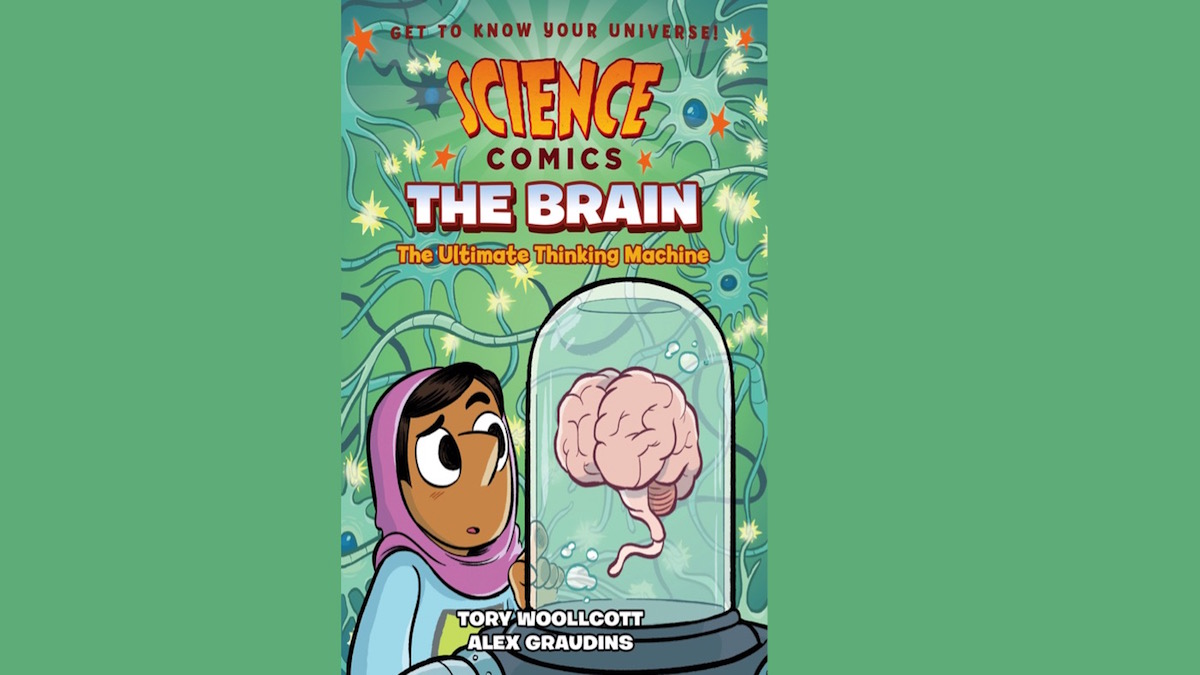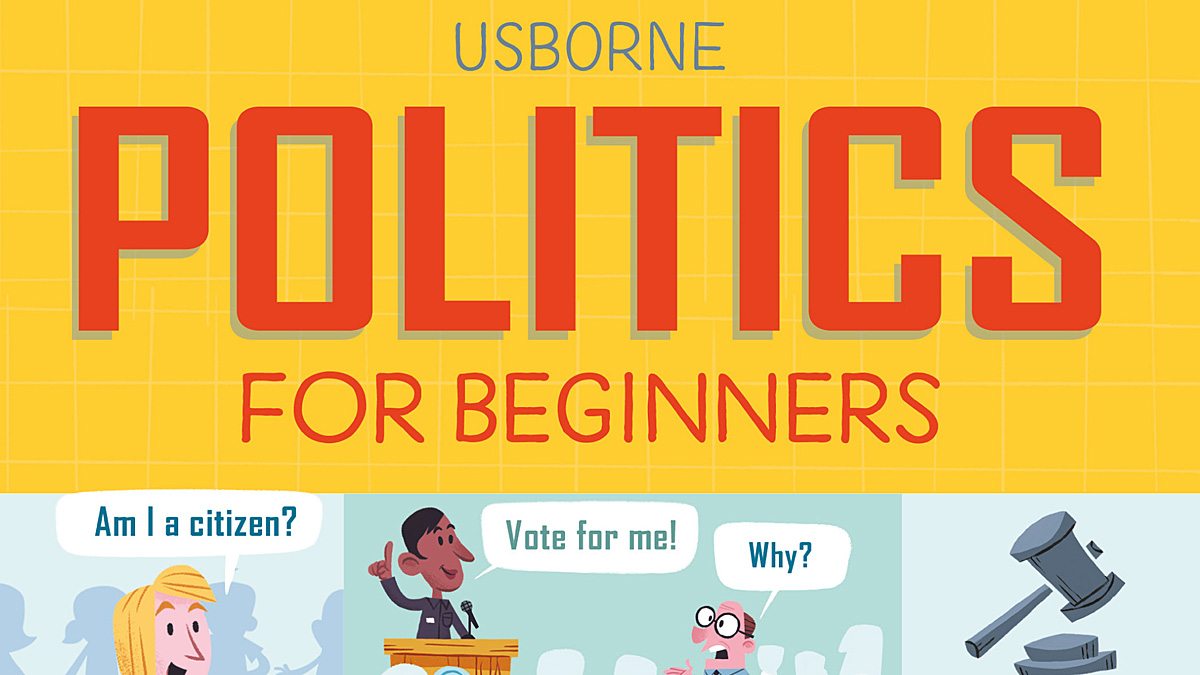
Politics for Beginners, a new book from children’s publisher Usborne, is the perfect introduction to the messy world of politics for both children and adults looking to increase their knowledge. The book covers every aspect of politics, from types of political systems and ideologies, politics throughout history, and many of the big questions facing society today, and it handles everything in a generally factual and balanced way.
Chapters one through five of Politics for Beginners introduce dozens of political topics in a simple, easy to understand way. The book begins by explaining what politics actually means, then moves on to introduce concepts like power and authority (and the difference between the two), and what a government really is before covering a number of historic political systems—particularly those used in Ancient Greece and Ancient Rome—including empires, monarchy, and more. Dozens of political ideas and systems are explained from democracies to feudalism, meritocracy to dictatorship, and absolute monarchy. Real life historical examples are used throughout to give real context to what is being covered, although it must be noted that there is a significant Western bias throughout with the US, UK, and France taking up an overly significant number of pages.
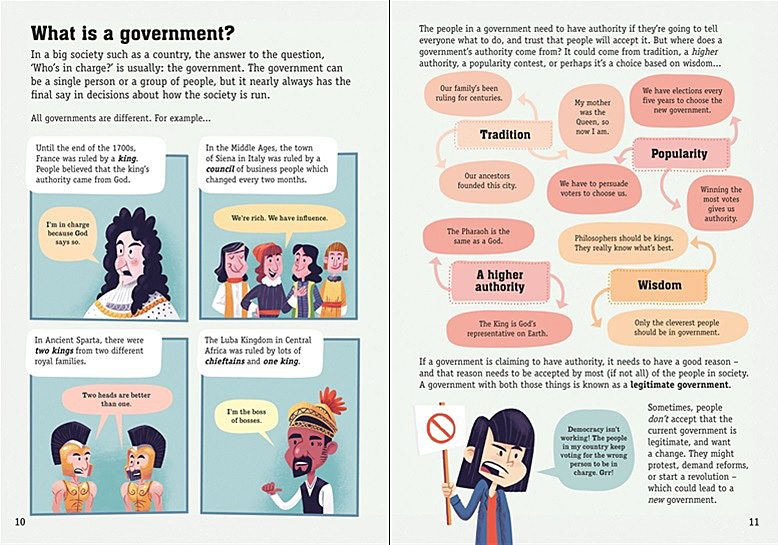
I found the later chapters the most interesting, as this is where Politics For Beginners began to get into the details of things I was never taught at school including the branches of government (executive, legislative, and judicial) and how they work together, and explanations of how international political bodies such as NATO, the EU, and the United Nations work. Elections and voting get their own chapter, which goes into detail on everything from the suffrage movement around the world and who can vote to different electoral systems like proportional representation, majority governments, and coalitions. An additional chapter goes into ways of affecting political change including protesting, lobbying, and even revolution.
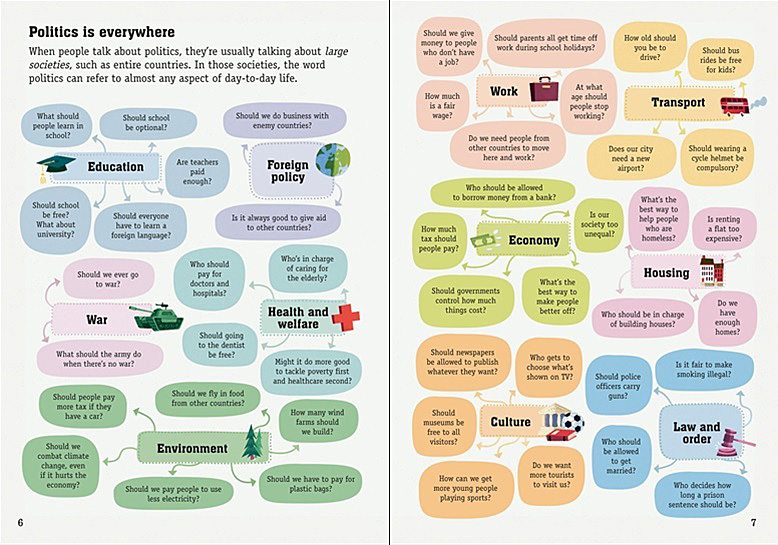
The final chapter of Politics For Beginners is titled “Big Questions” and it covers a wide variety of issues including “what is terrorism,” “how does the media affect politics,” and “can war ever be justified?” In many of these questions there is no wrong or right answer, and so the book provides a variety of viewpoints that allow the reader to consider various ideas and begin to form opinions of their own. The chapter ends with an introduction to debating societies and learning how to argue your points effectively without attacking your opponent. These are vital skills for anyone who spends time on the internet these days, but especially for anyone considering a career in politics.
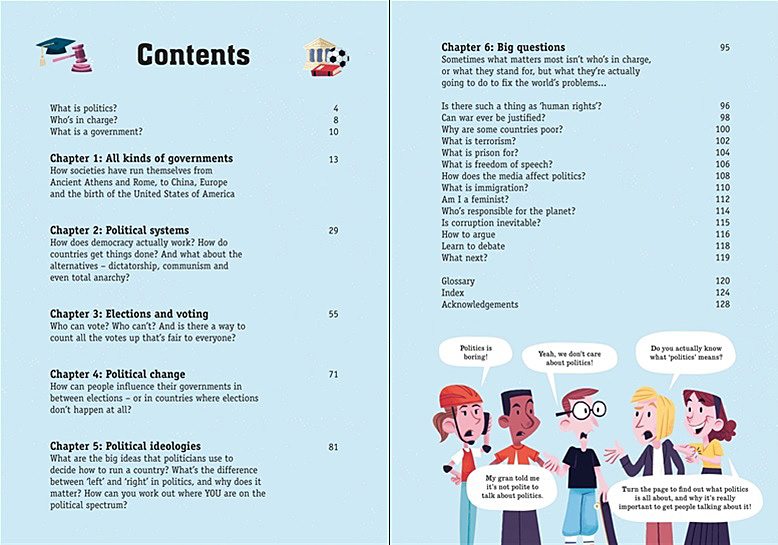
Politics is a difficult topic to approach with your kids. Many adults don’t feel like they know enough about it to begin a conversation, and it can be highly contentious, especially in families which span political divides. Politics For Beginners does not dig deep into any area but instead provides a groundwork for a basic understanding of every aspect of politics from A to Z. It ends with a highly useful glossary and encourages all readers to explore further and broaden their knowledge, achieving this without ever coming across as condescending. The bright colors used throughout the book, frequent use of infographic-style illustrations, and cartoons on every page help break up what could otherwise be overwhelmingly complex subjects into easy-to-digest bites of information, while graphs such as the political alignment “Where do you stand?” chart on pages 92/93 help readers to place themselves into the world of politics by encouraging them to consider their own opinions.
Politics for Beginners is a book I feel that everyone should read—young and old alike—because whether we like it or not, politics affects us all and we need to understand how we can make it work for us.
GeekMom received this item for review purposes.

